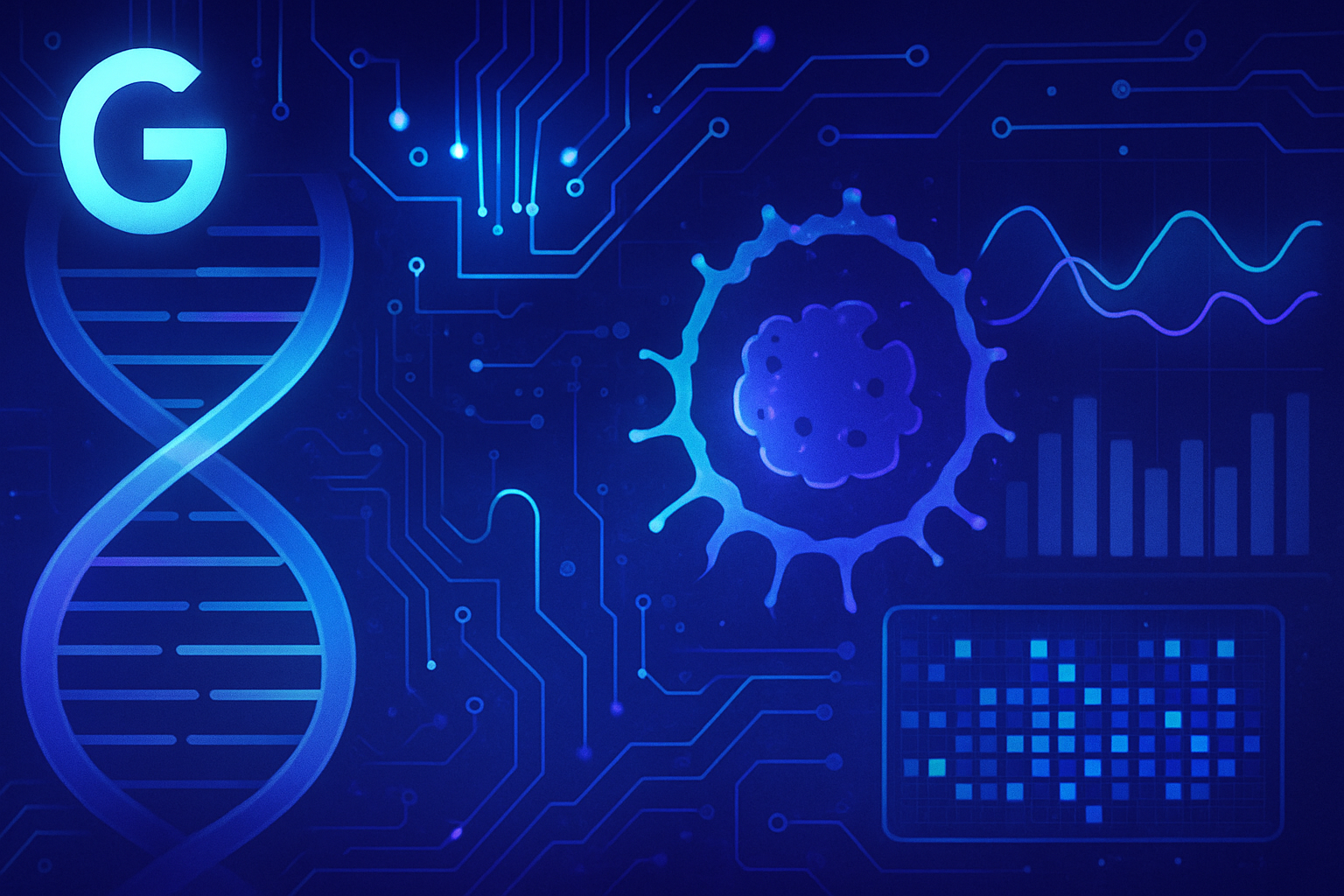A major advance in cancer genetics emerges today. Google presents a revolutionary AI tool, DeepSomatic, capable of precisely identifying genetic mutations associated with cancer. The discovery of these mutations is essential to develop effective treatments tailored to patients. This tool employs convolutional neural networks to surpass traditional methods, thus offering an innovative solution to the complexity of somatic variations. DeepSomatic promises to significantly improve diagnosis, allowing a shift towards a more advanced precision medicine. The implications of this tool are vast, transforming our understanding and approach to cancer treatment.
A major advance thanks to DeepSomatic
Google recently unveiled DeepSomatic, a new AI tool capable of accurately identifying genetic mutations related to cancers. This development relies on convolutional neural networks, offering an effective way to analyze the genetic sequences of tumors. Currently, the need for improved methods to understand tumor mutations is more pressing than ever.
The complexity of somatic variants
Somatic variants, often generated after birth, pose a real challenge for oncology research. They arise from environmental factors, such as UV rays, or due to spontaneous errors during DNA replication. Detection is complex, especially when they occur at low frequencies, sometimes below the error rate of sequencing.
How DeepSomatic works
During analysis, DeepSomatic compares tumor cells extracted from a biopsy to normal patient cell samples. This helps to elucidate the non-hereditary variations that fuel tumor growth. This process transforms raw sequencing data into images, facilitating the analysis of differences while filtering out sequencing errors.
Data quality and benchmark CASTLE
To train the tool, Google collaborated with the UC Santa Cruz Genomics Institute and the National Cancer Institute to create a reference dataset named CASTLE. This served to sequence tumor and normal cells from various samples. The evaluation was carried out using several sequencing platforms to obtain a consistent dataset, eliminating biases specific to each technique.
The results highlighted distinct mutation signatures within similar cancer types, providing insights into potential treatment responses.
Exceptional performance of DeepSomatic
The results obtained by DeepSomatic exceed those of existing methods on the three major sequencing platforms. For complex mutations, such as insertions and deletions, DeepSomatic shows an F1 score of 90% on Illumina data, a notable result compared to 80% for the competing method. On Pacific Biosciences data, the tool achieved a score above 80%, while the second best was below 50%.
Wide-ranging applications to other cancers
DeepSomatic has demonstrated its ability to adapt to new cancer types not initially trained. During a glioblastoma analysis, an aggressive form of brain cancer, the tool correctly identified the variants responsible for the disease. In collaboration with Children’s Mercy in Kansas City, it studied pediatric leukemia samples and detected known variants while identifying ten new ones.
Impact on precision medicine
This new AI tool could transform the approach of researchers and clinicians towards individual tumors. By identifying known cancer variants, DeepSomatic will facilitate therapeutic choices. The discovery of new mutations could also lead to innovative treatments. The prospect of improving precision medicine is emerging, with more effective therapies for patients seeking tailored solutions.
For more information on the use of AI in various medical fields, it is advisable to consult resources related to current research, particularly on optimizing treatment studies and the results of medical analyses through AI.
Frequently asked questions
What is DeepSomatic?
DeepSomatic is an AI tool developed by Google that accurately identifies genetic mutations associated with cancer in genomic sequences of tumors.
How does DeepSomatic improve the identification of somatic mutations?
DeepSomatic uses convolutional neural networks to detect genetic variants in tumor cells, offering superior accuracy compared to conventional methods.
Why are somatic mutations difficult to detect?
Somatic mutations can exist at low concentrations in tumor cells, making their identification more challenging compared to hereditary variants.
How is DeepSomatic different from other genetic analysis tools?
DeepSomatic stands out for its ability to perform effectively on complex samples, such as those preserved by methods that can damage DNA, while identifying non-inherited mutations.
What types of cancers can be analyzed with DeepSomatic?
DeepSomatic has shown great analytical capacity on various types of cancers, including breast cancer, lung cancer, and even pediatric leukemia samples.
How does DeepSomatic handle tumor samples without normal cells?
DeepSomatic can operate in “tumor only” mode when normal cell samples are not available, which is common for certain forms of cancer, such as leukemias.
What is the impact of DeepSomatic on precision medicine?
This tool could transform precision medicine by improving the understanding of specific genetic variants of tumors, thereby guiding existing treatment choices and facilitating the development of new therapies.
How is DeepSomatic trained to identify mutations?
DeepSomatic was trained on a high-quality dataset, developed from tumor and normal cell samples, combining data from multiple sequencing platforms to enhance accuracy.
What performance has DeepSomatic shown in comparative tests?
DeepSomatic has outperformed other established methods on major sequencing platforms, showing an F1 score of 90% for Indels on Illumina data, compared to 80% for the next method.
What are the potential clinical applications of DeepSomatic?
Clinical applications include enhanced diagnosis of cancer-causing mutations and treatment customization, providing physicians with precise information for patient treatment.






